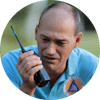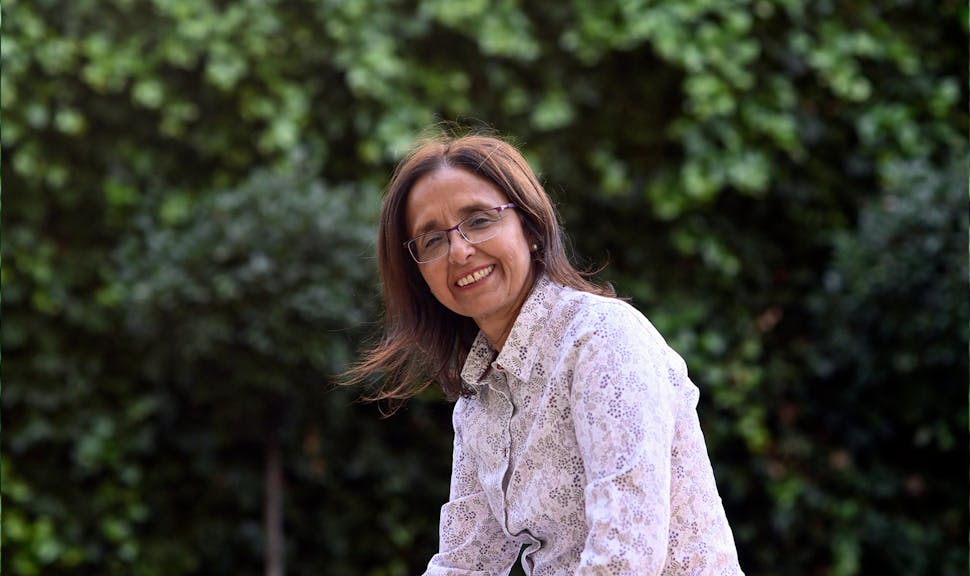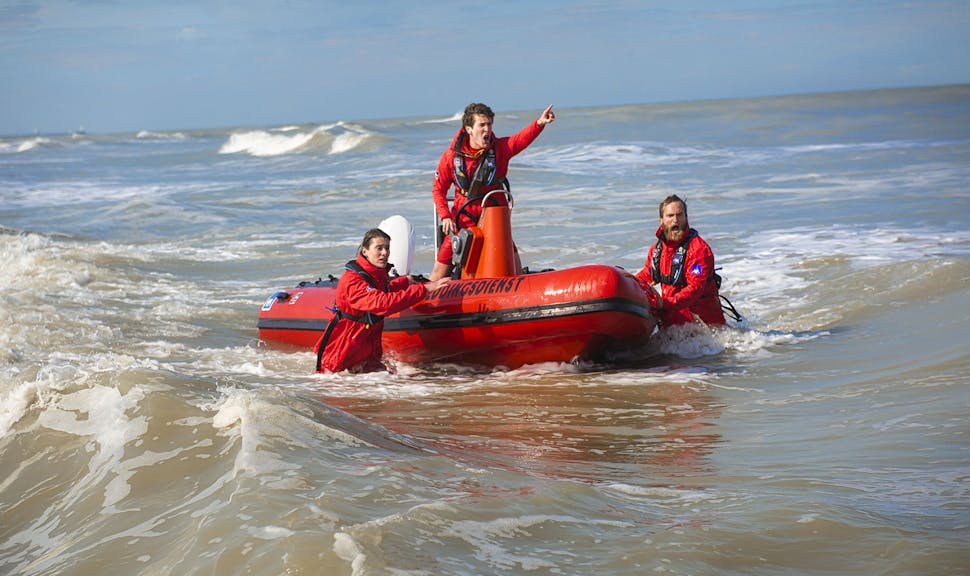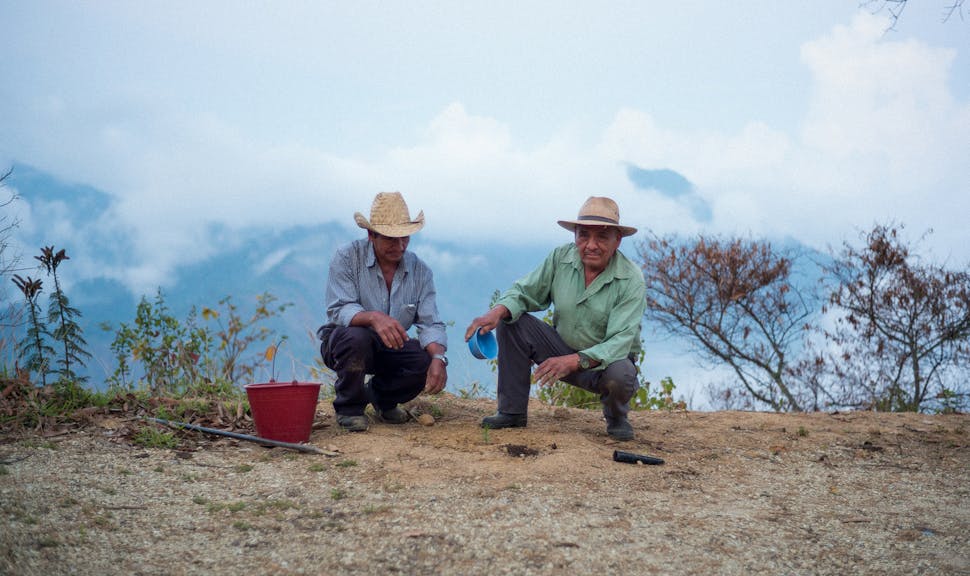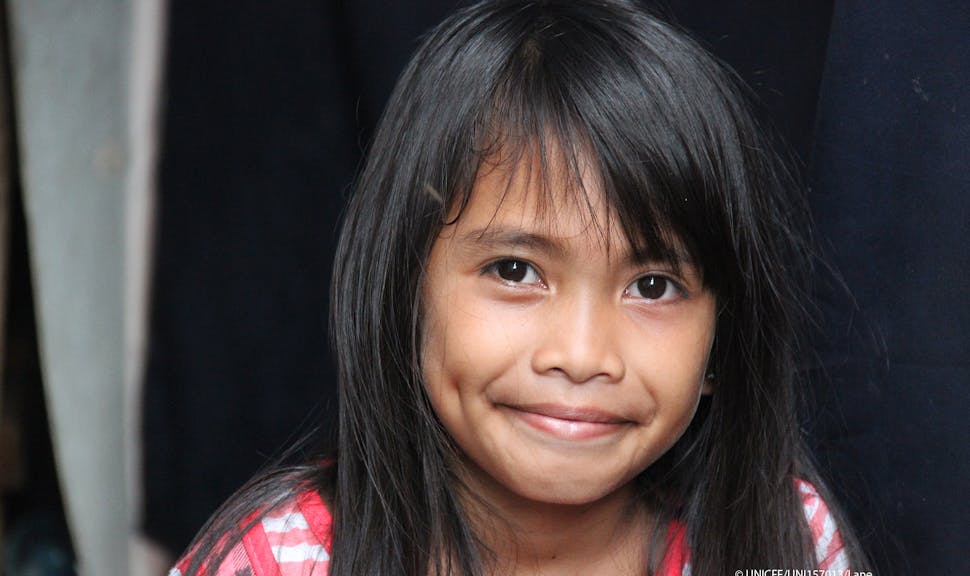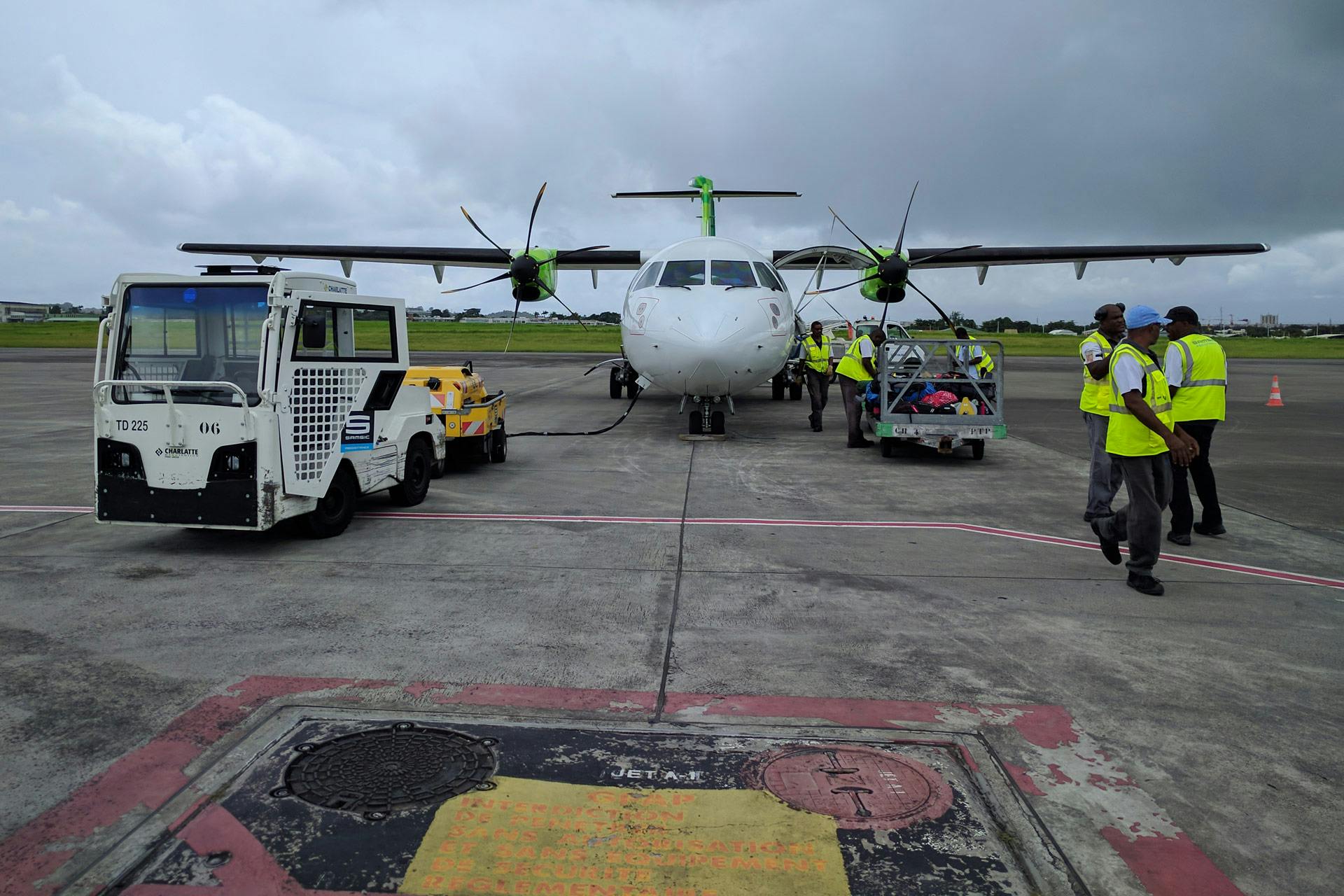
Alain de Schryver, a network engineer working for AXA in Brussels, participates in the corporate responsibility initiative Rescue Telecom. This international program, supported by AXA and partner NGOs such as Urgence-Telecom, sends AXA volunteers to disaster areas to help impacted communities by restoring satellite communications. Alain recounts his most recent mission with Urgence-Telecom, when he flew to St. Martin last September to assist the French Red Cross and the island’s residents.
After a 45-minute flight, as our plane approaches Saint-Martin, we suddenly become aware of the magnitude of the disaster that has unfolded. From the sky the chaos is already highly visible. Most of the houses have lost their roofs, which have been carried away by the wind. All that can be seen on the ground is debris. On the airport runway we are met by an incredible sight: planes lying on their sides like toys left behind by a child. We can only imagine the gale force winds that had left them in such a state: winds that had reached up to 360km per hour.
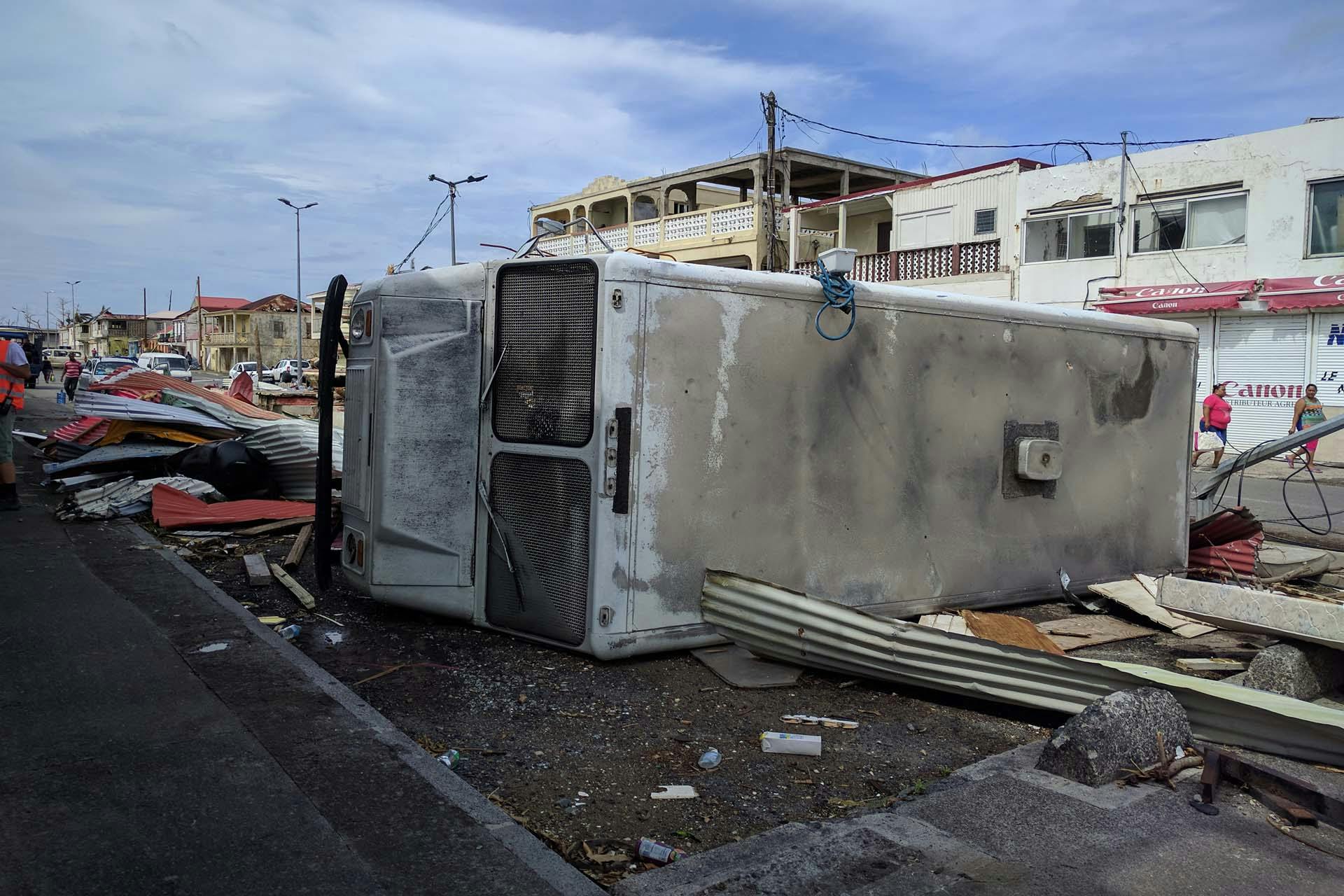
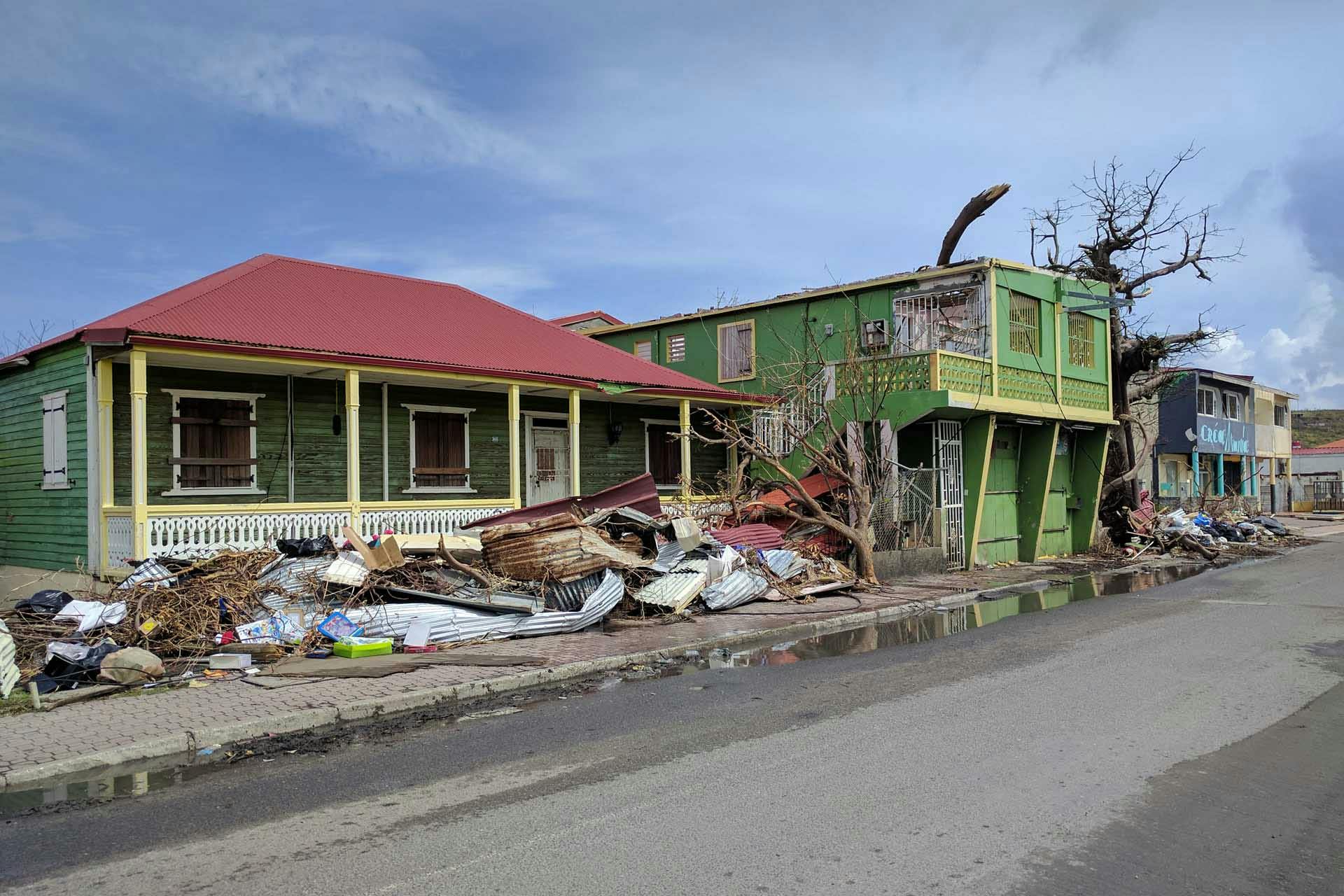
Brussels, 7 September 2017
One week earlier I was watching the news and saw the terrible aftermath that cyclone Irma had left in its wake on the Caribbean islands of Saint-Martin and Saint-Barthelémy, following its devastating passage through Antigua and Barbuda, when I received a message from Daniel Box: I need your help as soon as possible
.
Daniel coordinates the Rescue Telecom program for all of the partner associations and NGOs in France, Belgium, the United States and Japan. These nonprofits share the same field of expertise: restoring telecommunications following a natural disaster or other major crisis. We volunteers set up urgent telecommunication links via satellite and supply electrical infrastructure such as generators and solar panels. Phenomena such as earthquakes, hurricanes and tsunamis often have devastating effects on telephone lines and mobile networks. And yet it is at those times that these connections are most needed, if only to accelerate the arrival of aid and enable the people affected to reassure family and friends.
Related content

The Only Way Through A Crisis Is Together
read moreBut Rescue Telecom volunteers do not only intervene for natural disasters. For example, last year I travelled to Greece, close to its border with Macedonia, to where many migrants from the Middle East have flocked. The equipment that I set up there enabled migrants to identify themselves to the local authorities using email and to stay informed. In other words, it helped them exercise their fundamental rights.
The Rescue Telecom program was created in 2013 by AXA Tech, following the same concept as Urgence-Telecom, which is a non-profit organization founded in France by Pierre Bernard, a Paris-based AXA Tech employee, in 2009. Rescue Telecom offers technical, financial and material support to Urgence-Telecom and to other associations based the same model in Belgium, the US and Japan.
When Daniel created the local Belgian branch with John Cramer in 2013, he immediately thought of me. Like him, I had been a volunteer for several years as part of AXA Hearts in Action, AXA’s international volunteering program which brings together tens of thousands of employees to participate in solidarity-based operations.
Volunteering has always appealed to me. Even when I was a scout I always tried to carry out my good deed
every day. This commitment towards others has carried on into my humanitarian work. I can also count on the support of AXA and of my manager, with whom I have made arrangements to be reimbursed for my time off once I come back from my mission.
Knowing that I am always ready to volunteer, Daniel was able to include me in the team being set up by the NGO Urgence-Telecom to depart on the next available flight from Paris to Pointe-à-Pitre. A stopover in Guadeloupe is necessary in order to reach St. Martin. Located less than 300 km from the devastated island, it was spared by the hurricane and has an international airport. With the clock ticking, I prepare my luggage: tent, survival provisions, and above all my network technician equipment.
Orly Airport, 9 September 2017
Pierre Bernard, an AXA manager and president of the NGO Urgence Telecom, has been appointed by the program to lead the mission. I will be on his team, along with Chongguang Liu. Our role is to help the French Red Cross by installing telecommunication links to make their work on the ground easier. We meet on September 9 at the Orly airport with our 200 kilos of equipment. We are carrying BGAN terminals, which are portable satellite devices that enable internet connections to be established anywhere on the planet, even in so-called white zones
where no network is normally available. We also have satellite telephones, solar panels, batteries and a power generator.
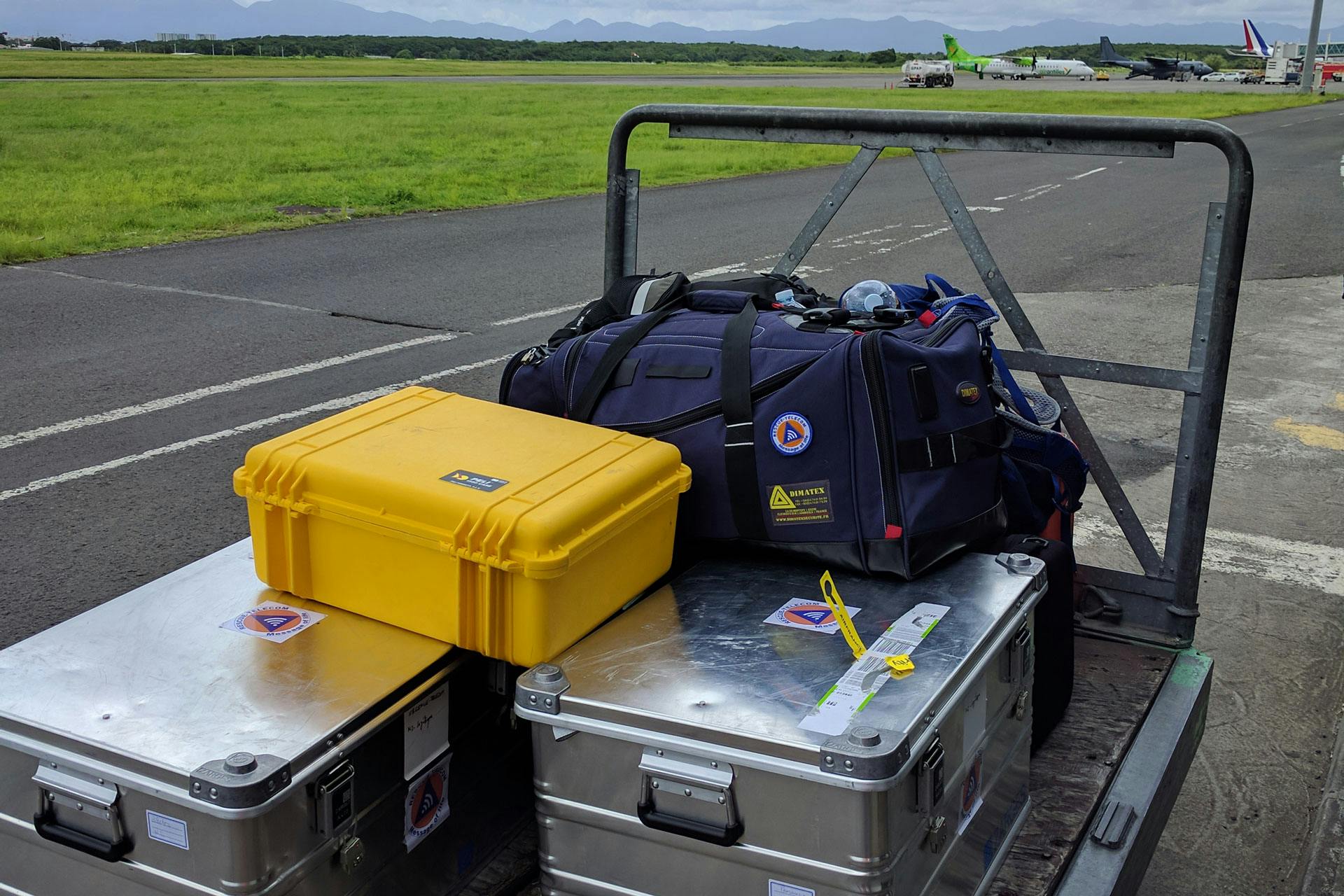
Alain, Pierre and Chong's luggage: 200 kilos of telecommunication equipment
When we arrive at Pointe-de-Pitre, a nasty surprise awaits us; we learn that all available planes have been requisitioned by the military and priority medical teams. With the help of my AXA Hearts in Action contacts in Guadeloupe, we work out a back-up plan to charter a boat. But 48 hours later, the local authorities give us the green light to board a flight requisitioned for civil security. We take off on September 13.
Marigot, 13 September 2017
This mission is by no means my first, but I have the feeling that we are going to have to be particularly resourceful this time round. The Red Cross teams take us to Marigot, the island’s capital. The NGO has set up a base camp there in a middle school. Upon arrival we realize that there is not much in the way of modern conveniences: the running water supply has been cut off and there is only tinned food to eat. The army has set up an 8 pm curfew, enforcing it with helicopters equipped with powerful headlights which patrol the town from above in order to dissuade looters.
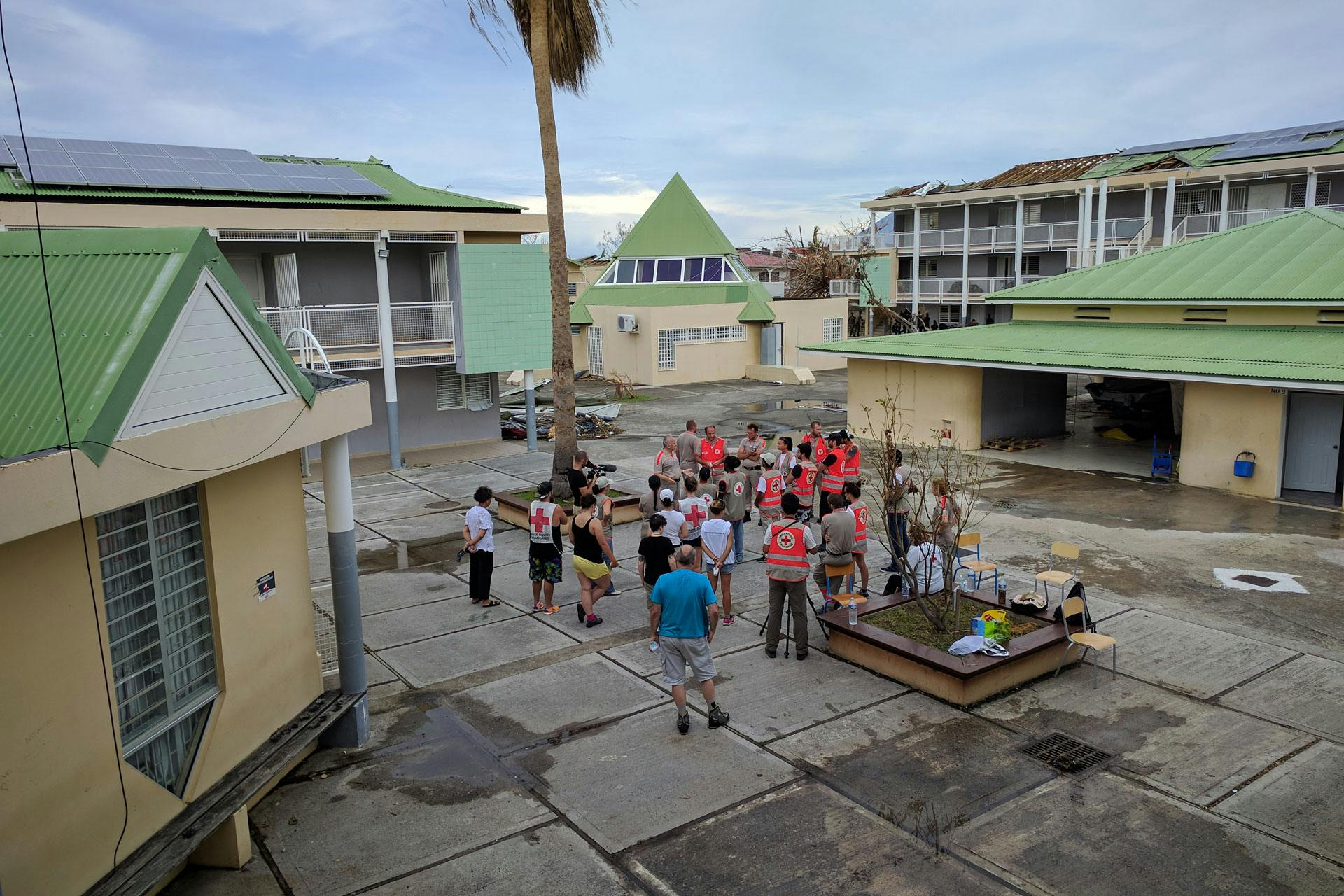
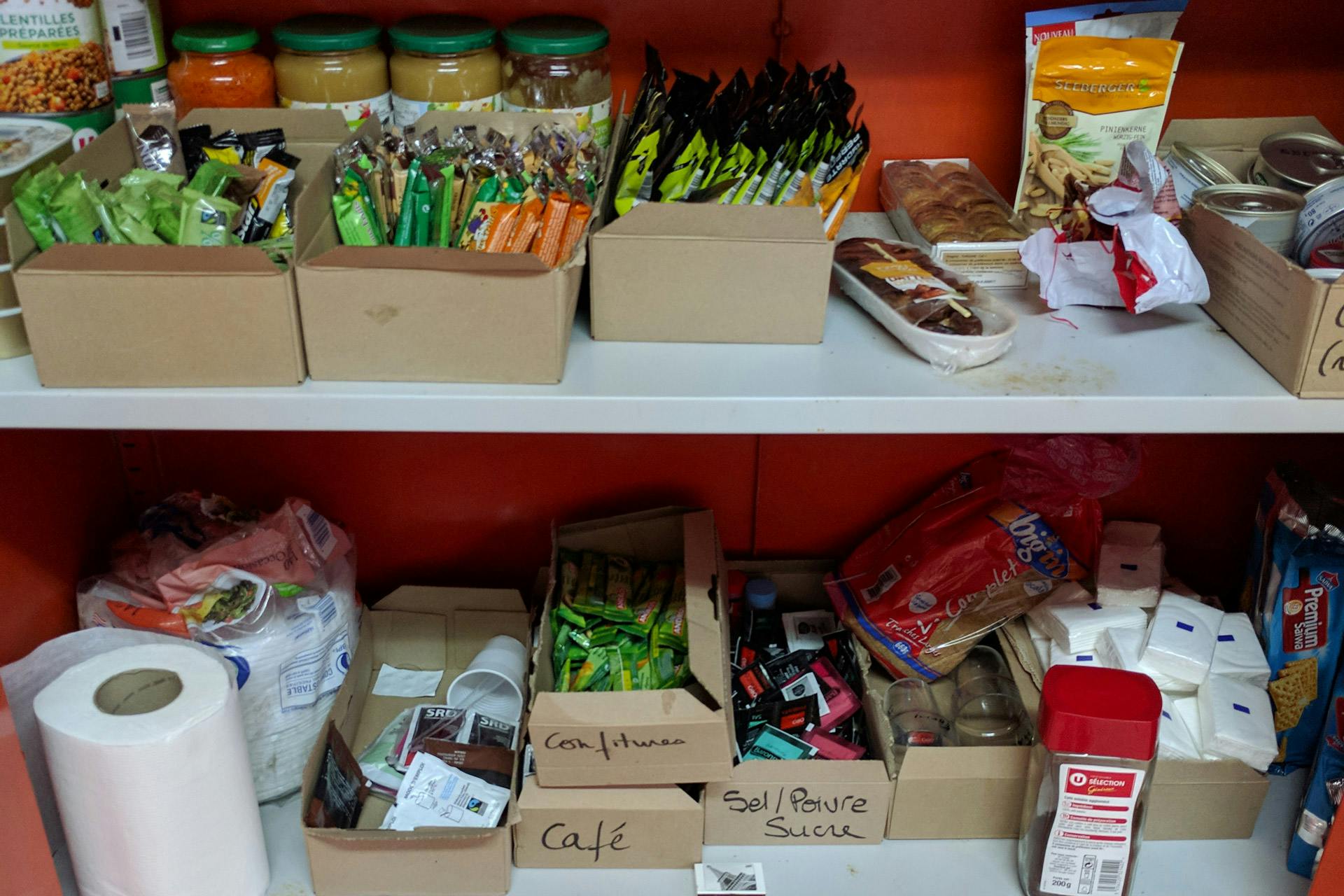
The following day we take stock of the situation. Luckily, the island’s telecommunications infrastructure has not been completely destroyed, but the power supply of the school’s telecom network is down. A school official shows us the IT equipment in place. Thankfully, the fibre optic infrastructure still works. We manage to restart the system and set up a Wi-Fi access point for all NGOs working to come to the aid of victims.
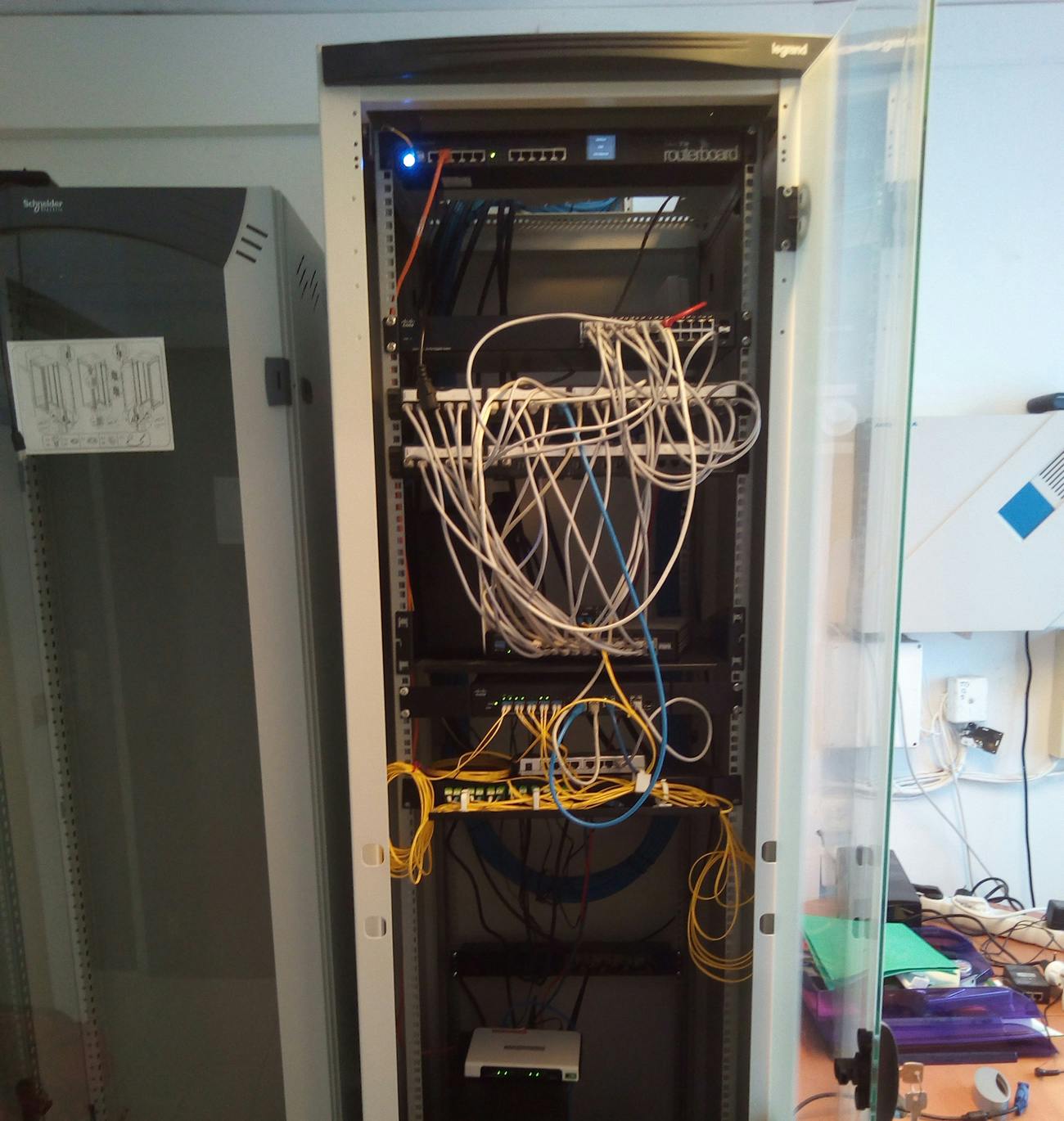
© Urgence-Telecom
This may seem trivial given the scale of the disaster and the distress of the population but it acts as a vital tool in ensuring that everyone is 100% concentrated on their task. Communication via internet with the headquarters and other health centres is finally established, thus allowing mission statements to be drawn up. The bandwidth even enables people to contact their families via a quick WhatsApp message. It’s a small yet highly valuable comfort when you are working under pressure all day long
one person confesses.
Humanitarian aid: A 360° approach
Recent weeks have seen a flurry of serious natural disasters. After the passage of the hurricane through the US and the Caribbean, and the severe floods that wreaked havoc in India, Bangladesh and Nepal, Central Mexico was then hit by an earthquake the likes of which the country had not seen in 30 years.
AXA took immediate action, providing direct and indirect logistical support through AXA Assistance’s network. The AXA US and AXA Mexico Foundations financially supported their humanitarian partners on the ground. In parallel, funds were transferred to the Red Cross, CARE and Unicef, all of which have a high level of commitment in these regions, as well as to the AXA Foundation in Mexico.
In addition, the Group committed to match all the donations made by its employees as part of global fundraising campaigns on the basis of one additional euro for every euro collected.
It is impossible to know in advance what a humanitarian mission will entail. You have to be ready to lend a helping hand in a variety of ways in order to push the collective work forward.
During the week-long mission, we didn’t just help the Red Cross teams. In the surrounding neighbourhood, the EDF electricity grid had been deactivated. We distributed recharge kits for mobile appliances to members of the community. We also lent our satellite telephones out too.
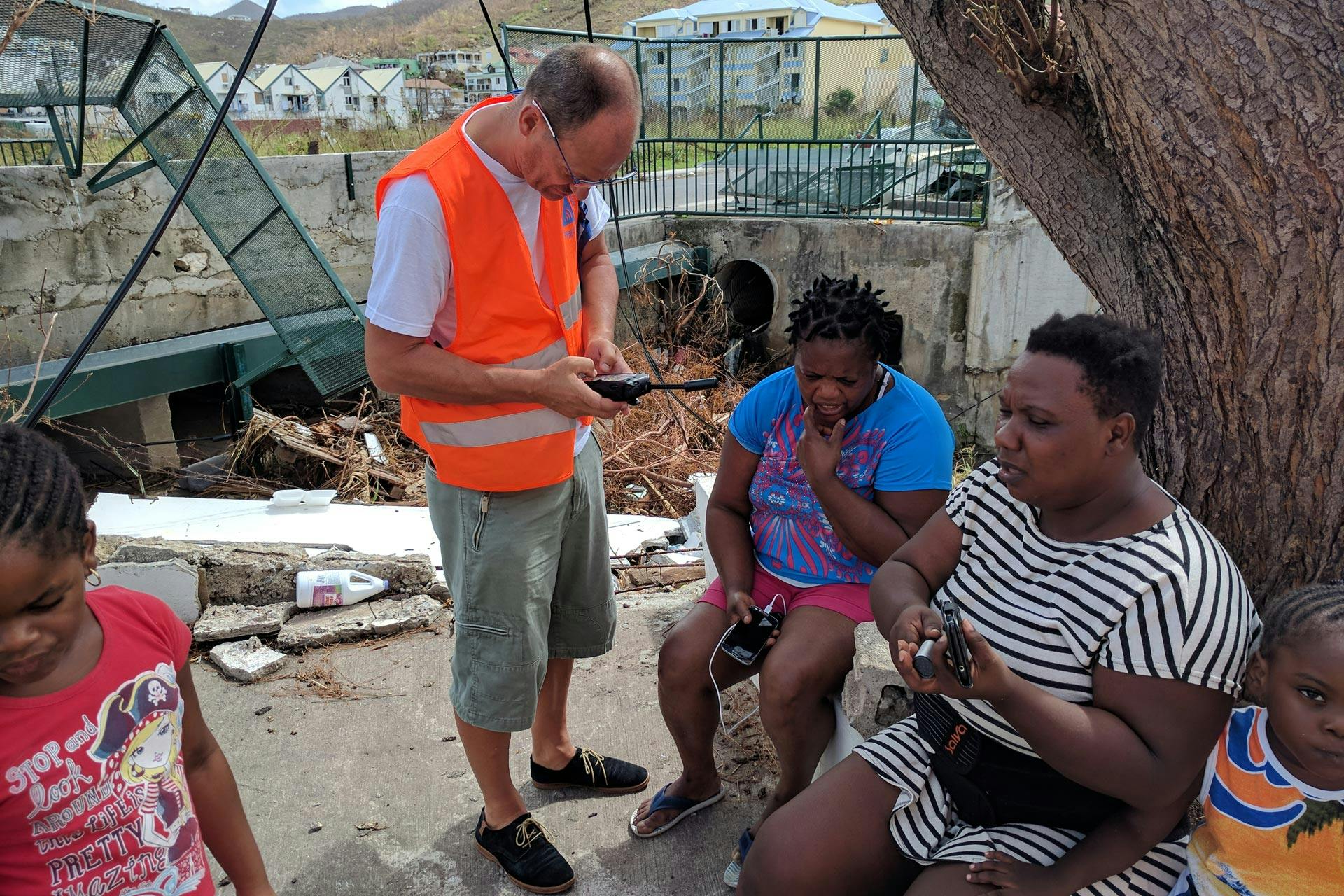
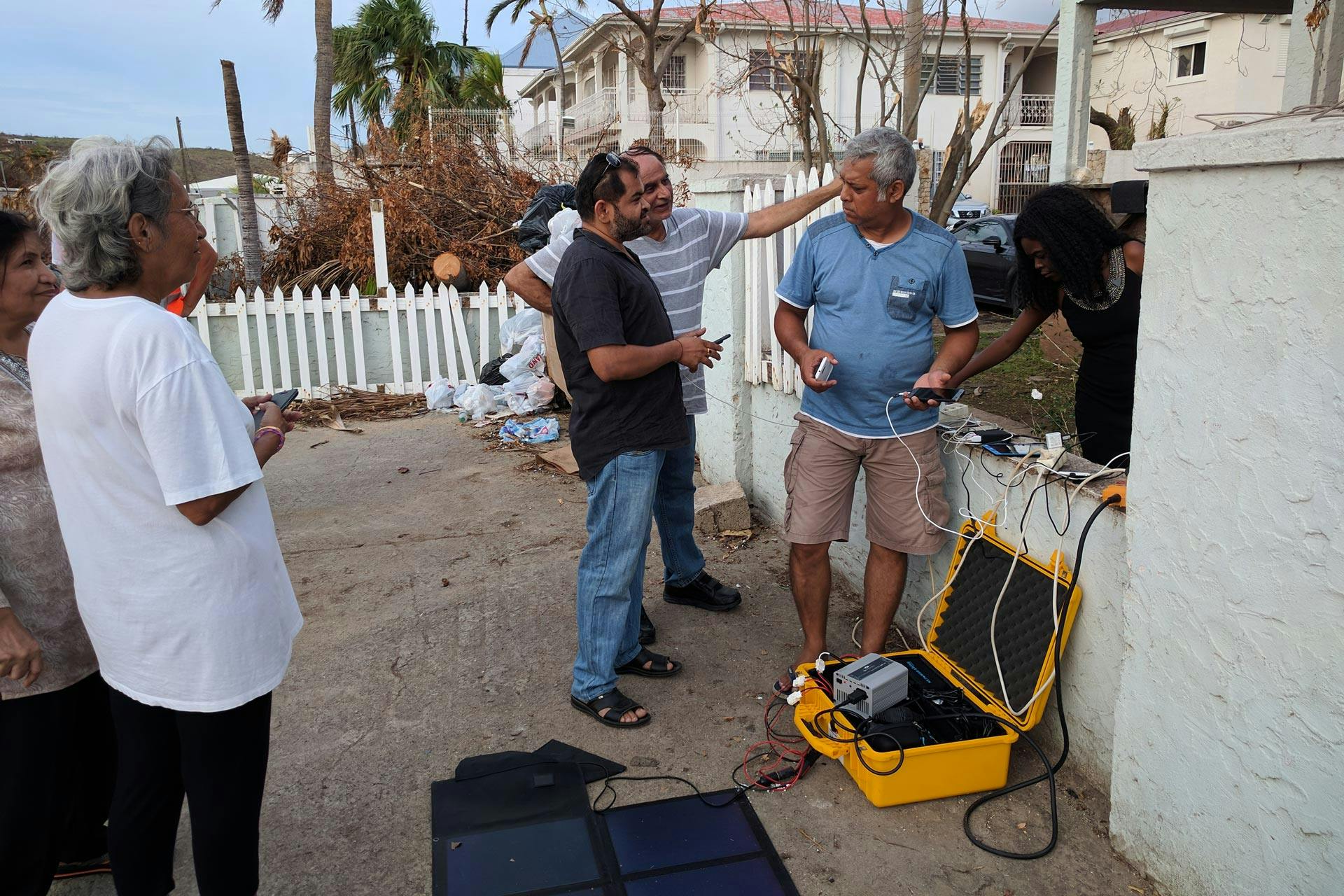
I may never forget the woman who, thanks to one of these phones, was able to let her children know she was alive: she was in tears.
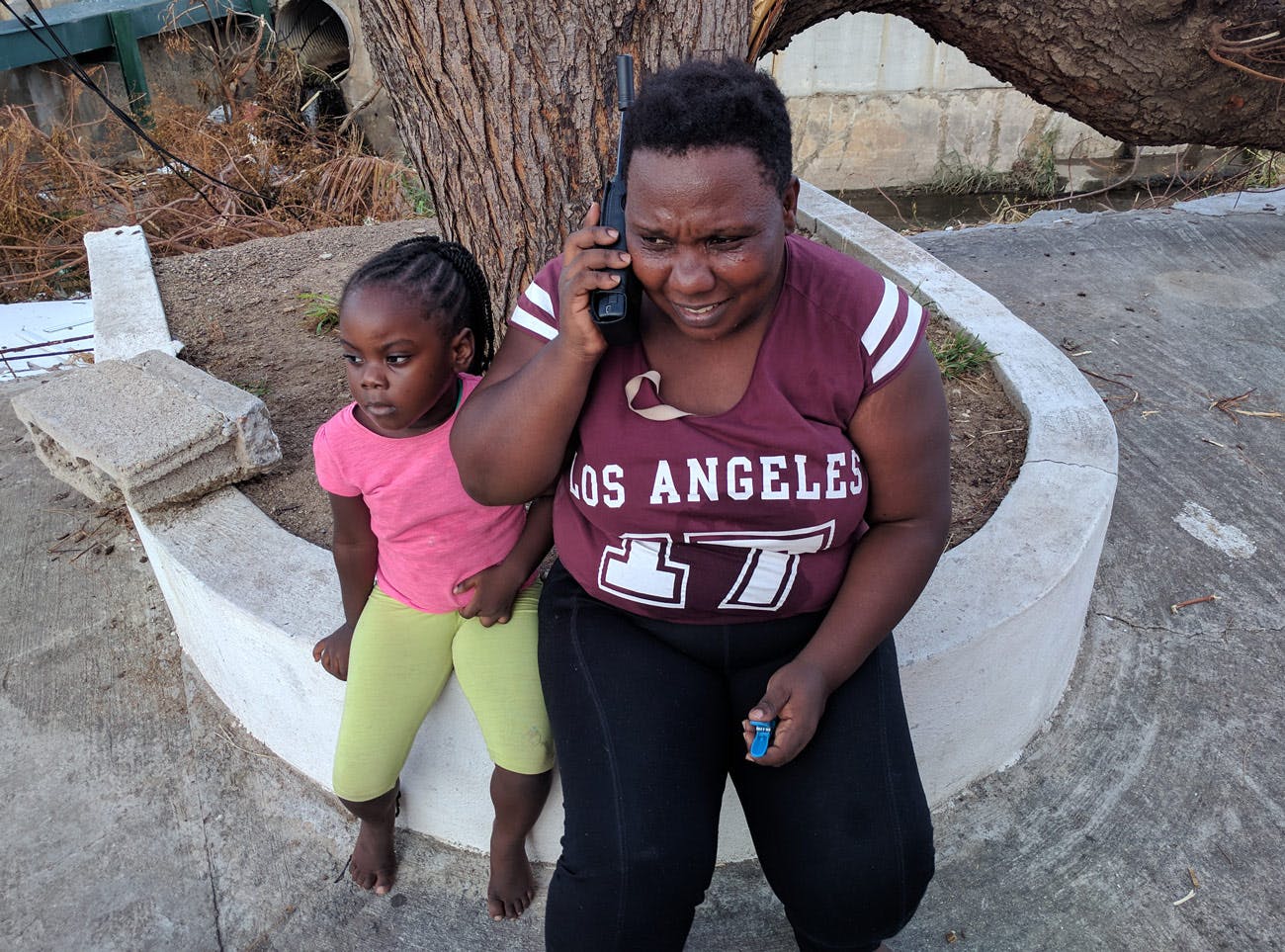
© Urgence-Telecom
Nor the man from Brittany who had been on the island for 18 years and who confessed to me on the flight back to Brussels that he had seen his whole life swept away in a matter of hours.
It is hard to not become emotional when you hear such stories, even though I try and keep a certain emotional distance between myself and the events, so as not to buckle and in order to remain efficient. And so as to remain concentrated on my true added value in these crisis zones: making the machines work.
